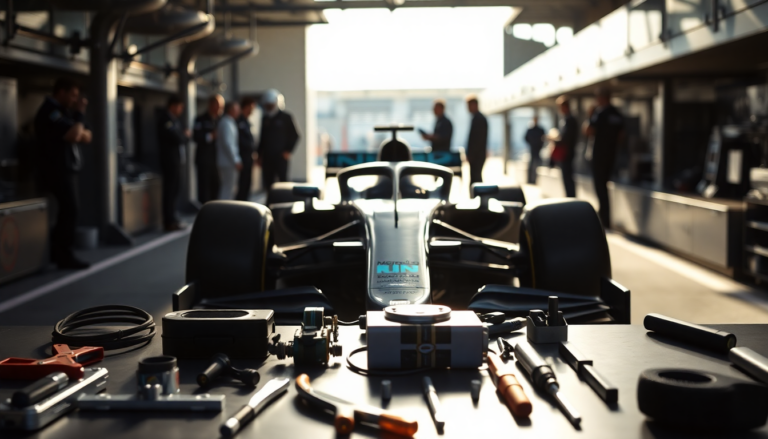Jacques Villeneuve, the 1997 Formula 1 World Champion, isn’t convinced by predictions that suggest Mercedes will maintain its stronghold on the sport as new regulations roll out in 2026. This stance sharply contrasts with the prevailing whispers in the paddock that the Silver Arrows will keep their competitive edge. Villeneuve’s perspective offers a glimpse into the rapidly changing landscape of Formula 1, where technological advancements and the evolving skills of rival teams could dramatically shift the competitive balance.
The Era of Mercedes Domination
From 2014 to 2021, Mercedes was the undisputed king of Formula 1, clinching eight consecutive Constructors’ Championships and seven Drivers’ Championships. Much of this success stemmed from their groundbreaking power unit, which set new standards for performance and efficiency. This allowed them to consistently outpace competitors, leaving others scrambling to catch up, often falling short even as they made strides toward closing the gap.
Reflecting on this era, Villeneuve highlights the significant head start Mercedes had when the hybrid age began. He shares, “The rumors are based on what happened at the dawn of the hybrid era, when Mercedes arrived with a five-year advantage over everyone else.” This head start enabled them to respond quickly to competitive pressures, often having the next version of their engine ready to go as rivals made progress.
A New Landscape in 2026
However, Villeneuve insists that the situation for 2026 is quite different. Unlike the unfamiliar terrain of hybrid technology back in 2014, the upcoming power units will be a natural evolution of existing systems. He believes this will create a much more level playing field. “Everyone thinks that because they succeeded once, they will do it again. I don’t believe constructors will be caught off guard a second time in the same way. Everyone has now absorbed this type of engine and has a solid foundation,” he asserts. This perspective suggests a shift in the competitive dynamics, where a powerhouse like Mercedes may not wield the same influence.
The 2026 regulations, which focus on sustainable fuels and enhanced electric components while eliminating the MGU-H, could further reshape the competitive landscape. Villeneuve stands firm in his belief that the competition will be more balanced, stating, “This is not new technology; it’s the same technology being reinvented. The perspective is entirely different.”
The Competitive Response
Villeneuve’s analysis brings attention to an important point: teams like Ferrari, Honda, and Red Bull Powertrains have heavily invested in mastering hybrid technology over the years. This extensive learning curve positions them to tackle the new regulations with a more refined skill set, potentially closing the gap that Mercedes has historically leveraged. The former driver emphasizes that while Mercedes may boast an exceptional engine, the uncertainty surrounding their future capabilities makes it tough to predict their continued dominance.
He wraps up with a thought-provoking observation: “They could have a fantastic engine, but there’s no way to know that right now. It’s all speculation. Nobody knows what is brewing in the design departments.” This sentiment resonates with a growing awareness within the racing community that Mercedes’ engineering prowess, while impressive, no longer guarantees automatic superiority. As the 2026 regulations draw closer, one can only hope that Villeneuve’s insights will prove to be prophetic, paving the way for a more competitive and unpredictable future in Formula 1.

